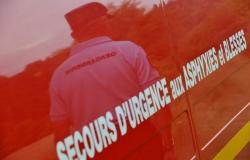To push more young people and women to invest in agriculture, the FAO (organization of the United Nations for Agriculture and Food) unrolls the Agri-Accelerator 2.0 project; A holistic approach highlighting economic profitability, food and nutritional security and environmental protection. This project was carried out in the regions of Saint-Louis and Thiès and targets the onion, rice, mango, oyster and arboriculture sectors.
Agriculture is practiced mainly by small producers who cultivate plots of reduced size to sow peanuts, cotton, rice, corn, millet, sorghum, etc. It is an important sector in Senegal which contributes 17 % to gross domestic product (GDP) and employs around 60 % of the active population.
Despite its economic weight and its social importance, agriculture no longer attracts, particularly young people who consider activity as painful and not very remunerative. This disinterest is perceptible by the movement of this fringe of the population towards Dakar and the other urban centers of the country which offer more economic opportunities in their eyes. In addition, this main activity in the rural world is subject to climatic hazards and low productivity. Factors that do not campaign for an attraction of agriculture. However, consensus is established on the agricultural potential of Senegal and the crucial role that this sector can play in the fight against unemployment, especially young and women.
Aware of these challenges and aligning the government’s guidelines, FAO implemented the agri-Accelerator 2.0 project, based on the principles of responsible investment in agriculture and food systems. This innovative approach aims to attract more young people and women in agriculture by changing their perception on the lack of attractiveness. The Agri-Accelerator 2.0 project, based on the principles of responsible agricultural investment, highlights a triple performance: profit, the person and the planet. “It is a financially viable investment with a guaranteed return of investment. It has a positive impact on the environment, that is to say it protects and better values natural resources with regard to the challenges induced by climate change.
To materialize this approach, FAO has worked on a strategy based on several levers according to Oumar Syll, coordinator of the Agri-Accelerator pole for responsible investment in food systems in Senegal and West Africa.
Saint-Louis and Thiès
The first lever is based on the improvement of the business environment by strengthening the ecosystem via cartography, that is to say the identification of actors, their needs, their roles and responsibilities. After this stage, the actors were made aware to integrate the principles of responsible investment in the process of selection, targeting and implementation of their investment project indicates Mr. Syll. He specifies that this project is carried out taking into account the context and priorities of the government. The priorities have the name: food and nutritional security, employment of young people and women, fights against poverty, especially in rural areas as well as the capacitation of actors, particularly young people in agricultural entrepreneurship.
“On the basis of national issues, national priorities in rural development, agricultural entrepreneurship, FAO has worked to promote the integration of the principles of agricultural investment responsible in Senegal, starting from the strengthening of the entrepreneurial ecosystem, the supervision of actors (which are at different levels of large or small investment), support and dialogue for the implementation of mechanisms ”, explains Oumar Syll. And to add: “After the promotion stage, comes that of the implementation that is done through the Agri-Accelerator pole. It is an acceleration program of very small and medium -sized businesses; It applies in a well-determined space with a flexible support component by prioritizing interventions, sectors, identification of opportunities to unroll an acceleration program in collaboration with a group of well-trained accompanying coaches to support young agri-prieurs throughout the acceleration program.
Mr. Syll insists on the “inclusive and profitable” nature of projects. This assumes that young targeted agri-priests must have at least certain knowledge. But the most decisive is the Agri-Entrepreneur pole approach, that is to say a prioritization of intervention areas and sectors. Thus, the young applicant must fulfill these criteria, that is to say being from an area of intervention of the project and activating in an eligible sector.
For this phase, the regions of Saint-Louis and Thiès were selected after a long selection process. The priority sectors for Saint-Louis are onion and rice and for the mango, oysters and arboriculture. “Young applicants must come from these two regions and evolve in these sectors. They must also have an existing project with the ambition to strengthen it, “insists Mr. Syll” it is not only a question of undertaking to make a profit but by moving on certain values, principles in particular ethics, responsibility and respect for the environment. They are not asked to integrate all of the ten principles but to ensure that their company is not harmful to the company, the environment and that it is profitable and respects decent work, “continues the coordinator of the agri-charter pole for a responsible investment in food systems in Senegal and West Africa.
Grants from 1.7 to 3 million FCFA to the best projects
At the end of technical support, the most deserving project leaders will be entitled to an incentive to invest. The FAO will select the best projects aligned with the responsible agricultural investment approach by granting them a subsidy of 1,700,000 FCFA. The two best projects that will be distinguished by their ability to contribute to reducing food waste will receive a 3,000,000 FCFA grant.
Mamadou Gueye







